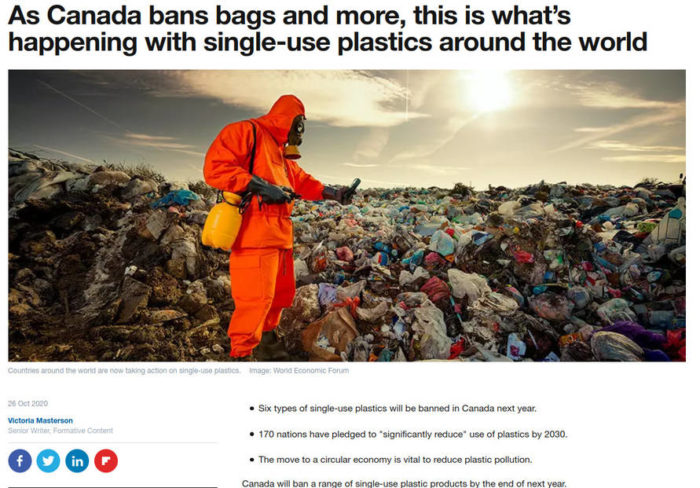We will soon see plastic the way we see asbestos, leaded gasoline, and marketing cigarettes to children
Asbestos, leaded gasoline, and marketing cigarettes to children made a lot of money. If you believe profitable sales mean a fair trade of money for products or services, therefore improving the world, they were good.
Whatever their benefits, they also killed people. I don’t know anyone who argues we should let markets alone regulate selling cigarettes to children. Nearly everyone agrees on laws regulating putting lead in gas. Your IQ is probably lower as a result of all the lead leaded gas put into the air.
Today people say, “Plastic has its problems but its so useful we can’t do without it.”
Future generations will recoil in horror at the time we’re taking to ban at least the single-use stuff. We’ve effectively filled the ocean with it, in the sense that all life over a certain size has plastic in it. Most of that plastic didn’t exist more than a few decades ago. Even as we know the health consequences, we’re producing more than ever.
Some hope?
Some places are doing just barely more than the bare minimum and starting to regulate plastic. I compiled a few articles to follow up to see what role models your municipality could follow to ban plastic.
- The Guardian: New Zealand to ban most single-use plastics by 2025
- Treehugger: Chile Boldly Bans Single-Use Plastics
- World Economic Forum: As Canada bans bags and more, this is what’s happening with single-use plastics around the world
- Footprint Foundation: Single-Use Plastic Legislation
- Global Citizen: 16 Times Countries and Cities Have Banned Single-Use Plastics
- Honolulu Civil Beat: The Problem With Honolulu’s Single-Use Plastic Ban At Restaurants
- PBS News Hour: Bold single-use plastic ban kicks Europe’s plastic purge into high gear
- Seattle Weekly: Single-use plastic bag ban begins Oct. 1 in Washington
- Live Kindly: 11 Most Impressive Plastic Bans Around the World
Still a long way to go, but some of the places and bans we’ve started with (note that nearly all have huge loopholes, like that food vendors can use plastic bags): microbeads in cosmetics (US, UK, Canada, New Zealand, Taiwan), plastic bags (Australia, Mexico City, Canada, Thailand, Rwanda, California, Kenya, Bangladesh, Washington State, Honolulu, Vanuatu, Montreal), single-use plastic (EU, New Delhi, Morocco), straws (California, UK, Malibu, Seattle, Miami Beach), plastic bottles (Vanuatu), Styrofoam (Zimbabwe, San Francisco, Berkeley, Santa Monica, Davis, Richmond, Portland OR, New York City), plastic plates and cutlery (France).
But not New York City, my home, nor most of the United States. Americans in board rooms and holding government authority, along with their peers in Europe, China, and India, are the main people whose decisions to drill oil and make poisons from it, however helpful, result in all this pollution.
Takeout containers, cars, and stretchy fabrics
Next time you buy takeout containers, cars, and stretchy fabrics, or packaged food or doof, or any unnecessary plastic, instead of thinking how convenient it is for you, maybe think about its end of life. Humans never created anything like this:

Sickening.
It’s sickening what we’re doing, no pun intended. We can stop. If we want to lead corporations and government we must first lead ourselves and live by the values we want to lead others to.
When we lead ourselves to live by our values and reduce plastic waste by 90 percent or so—that is, just the low-hanging fruit—we’ll find we improve our lives. The people who think it’s hard tend to be the most privileged, who erroneously believe they’re acting in solidarity with underprivileged by not acting. It’s nonsense, but their minds find ways to help them sleep at night, knowing the pollute the most and could change things the most with the least effort.
Read my weekly newsletter

On initiative, leadership, the environment, and burpees